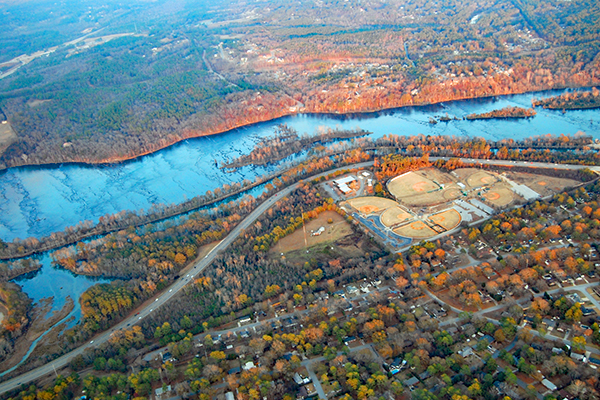
Savannah River Site Community Reuse Organization (SC) – Economic Development Strategic Plan
Challenge
A dramatic rise in energy prices leading up to the Great Recession—with crude oil spiking at more than $140 per barrel in mid-2008—suggested the era of cheap petroleum was coming to an end. Surging prices for fossil fuels, coupled with air quality and national security concerns, contributed to a rise in federal spending on alternative energy technologies and conservation measures. Communities surrounding the US Department of Energy’s Savannah River Site (SRS) were poised to benefit from these policies, given the region’s historical strengths in nuclear and other energy technologies, especially hydrogen, biomass/biofuels, and batteries. However, significant investments would be required for this opportunity to be realized.
Response
As part of leveraging the 300 square-mile SRS, the Savannah River Site Community Reuse Organization (SRSCRO) hired the team of Canup & Associates and TIP Strategies to prepare an economic development strategic plan for the organization’s five-county service area. The consulting team was tasked with determining the feasibility of locating a proposed “Energy Park” on the SRS, identifying specific targets for the park, and developing broader target industries and diversification strategies for the bi-state region, which includes the cities of Augusta, Georgia, and Aiken, South Carolina. Along with exploring on-site and off-site opportunities, the plan provided recommendations for maximizing the region’s other unique assets which included the Savannah River National Laboratory, Fort Gordon, and the Medical College of Georgia. The team identified industry targets for the SRSCRO and its allies to pursue (energy technology, life sciences, security, and environmental sciences) as well as opportunities specific to the SRS and the proposed Energy Park (DOE mission-related projects, public-private investments, alternative energy projects, and nuclear demonstration projects). Since completion of the plan in 2010, TIP has been engaged by SRSCRO to conduct several workforce-related engagements.